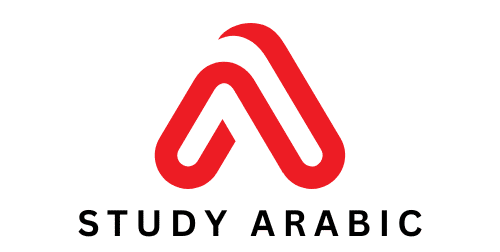What Techniques Can Be Applied to Enhance Ethical Sourcing in Your Business Supply Chain?

In an era marked by the growing importance of sustainability and social responsibility, businesses are facing increased pressure to ensure their supply chains are not just efficient, but also ethical. Ethical sourcing is an integral part of supply chain management, focusing on aspects like environmental sustainability, social equity, and economic viability. This approach considers not only the end product, but also the means by which it is produced and delivered. Achieving an ethical supply chain, however, requires strategic planning, rigorous management, and continuous monitoring. This article will explore five key techniques that can be employed to enhance ethical sourcing within your business supply chain.
Emphasizing Transparency and Collaboration
Good ethics start with transparency. When it comes to ethical sourcing, transparency means providing full disclosure of suppliers’ operational and production processes, and ensuring this information is accessible to all relevant stakeholders.
Also to discover : What Are the Essential Components for Building a Resilient Business Continuity Plan?
To foster transparency, it is essential to establish a collaborative relationship with your suppliers. Collaboration involves sharing goals, challenges, and solutions, and working together to improve practices. Technology can play a pivotal role in fostering collaboration and transparency. Digital platforms can provide real-time visibility into suppliers’ operations, helping companies monitor compliance with ethical standards.
Transparency also extends to your customers. Today’s consumers are increasingly concerned about the origin and production of the products they purchase. By being transparent about your sourcing practices, you can earn their trust and cultivate a loyal customer base.
Also to see : How to Utilize Augmented Reality to Improve Customer Engagement in Retail?
Implementing Rigorous Supplier Auditing
Effective auditing of suppliers is a cornerstone of ethical sourcing. Auditing involves assessing suppliers on various ethical parameters like labor practices, environmental management, and social impacts. It’s about looking beyond the immediate financial implications and considering the full range of sustainable and ethical implications.
Regular auditing enables companies to identify potential issues and resolve them proactively. It’s also an opportunity to assess suppliers’ commitment to ethical practices and their ability to meet agreed ethical standards. Supplier auditing should be continuous and systematic, with a clear focus on improving suppliers’ ethical performance over time.
Integrating Sustainability into Procurement Policies
Procurement policies can significantly influence the sustainability of supply chains. Integrating sustainability into procurement involves considering environmental, social, and economic factors in sourcing decisions, alongside traditional considerations such as cost and quality.
To integrate sustainability into procurement, companies need to embed sustainability criteria into supplier selection processes and contract terms. These criteria can range from environmental management systems in place, to labor conditions and human rights practices, to the suppliers’ contribution to local economies.
Utilizing Data for Ethical Decision Making
Data plays a crucial role in managing ethical supply chains. It enables businesses to monitor supplier performance, identify risks, and make informed decisions.
Companies need to collect and analyze data on a wide range of indicators, including suppliers’ environmental footprint, their labor practices, and their social impacts. This data can be collected through supplier self-assessments, third-party audits, and on-the-ground investigations.
Advancements in technology have made it easier than ever for businesses to collect and analyze this data. Digital platforms can provide real-time insights into supplier performance, helping businesses monitor compliance and swiftly address any issues.
Investing in Supplier Capacity Building
Sometimes, suppliers may struggle to meet ethical standards due to lack of knowledge or resources. In such cases, it’s crucial for companies to invest in supplier capacity building.
Capacity building can involve training suppliers on best practices, providing them with resources to improve their operations, or even offering financial support to implement necessary changes. By investing in supplier capacity building, companies can ensure their suppliers are equipped to meet ethical standards and contribute to sustainable supply chains.
In summary, ethical sourcing is a complex process that involves collaboration, transparency, rigorous supplier auditing, integration of sustainability into procurement policies, leveraging data, and investing in supplier capacity building. With these techniques, businesses can ensure their supply chains are ethical, sustainable, and beneficial for all stakeholders involved.
Adopting a Code of Conduct for Suppliers
The implementation of a code of conduct for your suppliers can serve as a critical step towards improving the ethical sourcing of your supply chains. This code of conduct should outline clear guidelines and expectations regarding labor practices, environmental management, social impacts, and any other ethical aspects that are pertinent to your business.
In the creation of this code, it is valuable to involve stakeholders from various sectors of your business including procurement, human resources, legal, and sustainability teams to ensure that all ethical aspects are comprehensively addressed. The code should be clear, concise, and easily understood by all parties involved. It should also be adaptable to accommodate changes in business operations, market demands, and regulatory requirements.
Furthermore, it’s crucial that the code of conduct is not just a document that is signed and stored away. It should be actively communicated, enforced, and monitored. Regular supplier training and education initiatives are useful for this purpose. This consistent engagement not only ensures compliance but also promotes a culture of continuous improvement and ethical responsibility within your suppliers’ operations.
Leveraging Technology for Demand Forecasting
In the quest for ethical sourcing, the application of technology can extend beyond just monitoring supplier compliance. It can also be applied in the area of demand forecasting. This technique involves predicting future demand for products to optimize production levels and reduce waste. It addresses the environmental sustainability aspect of ethical sourcing by minimizing the carbon footprint of your supply chain.
Demand forecasting utilizes various data sources such as past sales trends, market research, and economic indicators. Advanced technologies like artificial intelligence and machine learning can analyze these vast and complex datasets to provide accurate demand predictions.
By accurately forecasting demand, you can ensure that your suppliers do not produce more than necessary. This not only prevents wastage of resources but also avoids the potential social impacts that can arise from overproduction such as excessive labor demands and poor working conditions. Thus, leveraging technology for demand forecasting is a potent technique for enhancing the ethical sourcing in your business supply chain.
Conclusion
As more and more consumers and businesses are prioritizing sustainability and social responsibility, having an ethical supply chain isn’t just an option—it’s a necessity. Employing techniques like emphasizing transparency and collaboration, implementing rigorous supplier auditing, integrating sustainability into procurement policies, utilizing data for ethical decision making, adopting a code of conduct for your suppliers, and leveraging technology for demand forecasting can significantly enhance ethical sourcing in your supply chain.
However, achieving an ethical supply chain isn’t a one-time task. It requires continuous monitoring, regular improvements, and a long-term commitment to sustainable practices. Remember, an ethical supply chain isn’t just beneficial for the environment and society, it can also improve your company’s reputation, customer loyalty, and ultimately your bottom line. So, take that first step towards ethical sourcing in your supply chain and watch as it reaps rewards for your business and the world at large.
